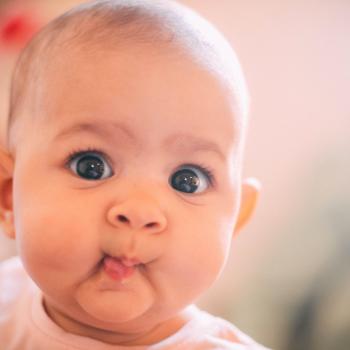I happened by Psalm 24 the other day, not long after reading that long, interesting BuzzFeed review of Girl, Wash Your Face. I still haven’t read the book, which I suppose I should do some day, but in the meantime the review is pretty satisfying. The BuzzFeed author doesn’t appear to be a Christian, but does make some astute observations about the way Hollis handles the Bible, and manages, better than anyone heretofore, to hint broadly at the idea that whatever it is that Hollis selling, it isn’t actual Christianity. You don’t have to be a Christian, in other words, to see that one key problem about being human is a deep, abiding, unsolvable helplessness that the self-help gospel fails to ameliorate.
Although, one might say, solving the helplessness problem is what makes the world go round, and especially the economy. You look at the bleak expanse of your life, you see that something isn’t right and needs to be fixed, you attempt to fix it, you probably spend money towards that end, you fail to one degree or another, you look at it again, you try again, maybe you make some progress, but then something else goes wrong—wash, rinse, repeat, and so the long western day wears on. At the end of it, you still die. And in the meantime, there are a lot of things that cannot be fixed.
Which is what’s so clever about that review. Hollis claims to have discovered a fix, but a vague examination of her life shows you that she still has all kinds of problems, some of them just as ugly as everybody else’s. And in the end she also will die. No matter how much she washes her face, she and all of us, still have to face that bleak reality.
But then, also, there is the matter of Hollis’ particular metaphor for pulling your life together and making the change that is so much needed. What could be easier than washing your face? You turn on the tap and run your hand under the pure, clear, stream of warm soothing water. You splash it on your face. It enlivens you at once. It makes you clean. You turn off the tap and wander away into your life, recalibrated, ready to go. One simple perfect act to set you on your way.
Or, like some women in other parts of the world, you wake up in the gray dawn, search through your shack for your big plastic drum, haul it across the way, stepping gingerly over the open drain that, because of the drizzling rain, is overflowing its crude banks, trudge across the uneven ground, dig around on your person for a shilling, give the shilling away, and have your plastic drum filled with basically potable water—the water that you will cook with and wash with for that day. You pick up the now heavy drum and retrace your steps.
You can wash your face all day long, in other words, whether you are rich or whether you are horribly poor. But there’s no eternal sufficient way of pulling yourself up out of the mire. The key is to forget about the mire, which, let’s be honest, is lots easier in places with running water than in places without it. This being so, it is sort of appalling to suggest that there could be some morally good quality to having your life together in a place where the water runs so cleanly and easily. Or is it that we’re not talking about the one who has to haul her plastic drum for miles and miles? That the washing your face principle of self actualization is not universal and works best if you aren’t chronically ill, or chronically depressed, or haven’t suffered terribly from the unreasonable and sometimes evil choices of other people, let alone yourself?
Whereas I would say that it doesn’t work for anyone. Helping yourself might be nice in the short term, but it doesn’t solve the deep terrible helplessness of mortality itself.
“Who shall ascend the hill of the LORD? And who shall stand in his holy place?” wonders the psalmist. You may not have thought of the Lord, in all your washing of this and that, in reorganizing your life to make it more comfortable for yourself, in trying to make sense of the world you inhabit. But the question of his holiness hovers in the background. It’s one of the angular, unbendable realities that we try to avoid, like the cost of water. Surely I will go up the hill no problem. I won’t think about it in this life, but when it comes time, at the hour of my death, to climb up there, it will probably not be that big of a deal.
Unhappily, the psalmist goes on to answer his own question, “He who has clean hands and a pure heart, who does not lift up his soul to what is false and does not swear deceitfully.” Which is a poetical way of saying that you can wash your face and hands and kitchen counter, and bright new kitchen floor, and clear out the sewer in front of your shack, and wash and wash and wash but that all that washing never solves the problem. Your clean face does not equal a clean heart. And if other people can see how bad you are, what hope do you have when God looks at you? None. You don’t have any hope.
Except that the psalm isn’t over. There is one person who doesn’t have any deceit in his mouth. Whose heart was so clean he could touch what was unclean and not die. Who could reach down into the mire of our lives—whether clean on the outside, or terribly dirty—and pull us up, out, up onto the hill by the power of his own merciful goodness.
“Lift up your heads, O gates! And be lifted up, O ancient doors, that the King of glory may come in,” cries the psalmist. Look up! Away from yourself. You are helpless. You can’t do it. You are dying. But the King is coming. The good, clean, pure King who can do and already did do everything that you wanted to, but couldn’t. Look at him and live. After all, he himself is, what did he call it? Living Water. If you want to wash, and drink, and live, he is the one you need. And it doesn’t cost a shilling or anything.













